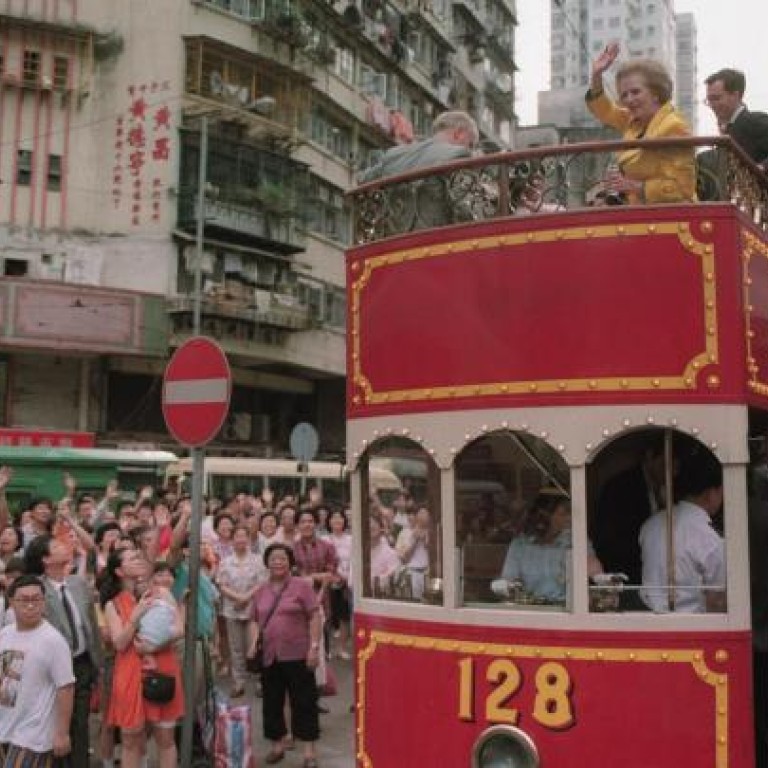
For Deng, 'Iron Lady' had to yield on Hong Kong
Thatcher failed to talk paramount leader out of taking back Hong Kong
The lady was not for turning, but there were times when the Iron Lady had to bend.
During the historic talks with Deng Xiaoping in Beijing in September 1982, Margaret Thatcher told China's then paramount leader that Hong Kong could face disastrous consequences if Beijing insisted on resuming sovereignty over the city based on its policies.
"Those with money and skill would immediately begin to leave the territory and this would bring about an economic collapse, which could be irreversible," she said at the meeting.
Those with money and skill would immediately begin to leave the territory and this would bring about an economic collapse, which could be irreversible
Thatcher lobbied Deng to accept the formula of exchanging Hong Kong's sovereignty in return for continued British administration after the lease of the New Territories expired in 1997.
Deng, known as a leader with a strong will, responded that sovereignty was not a matter which could be discussed and Beijing would certainly regain sovereignty over the city in 1997.
Professor Zhang Tongxin, former director of Renmin University's Taiwan, Hong Kong and Macau Research Institute, said Thatcher went into the negotiations with a tough stance. "But she came to realise China's firmness on taking back Hong Kong. The negotiations were very difficult at the beginning, but Mrs Thatcher was able to adopt a pragmatic way of thinking, which led to a not-so-rough transfer of sovereignty," Zhang said.
Video: Margaret Thatcher on Universal Suffrage in Hong Kong and China
London later dropped the plan to continue its administration of Hong Kong after 1997 and both sides engaged in talks on the city's future. In 1984, Beijing and London signed the Sino-British Joint Declaration.
At the time, many in Hong Kong felt Britain had let the colony down. Democratic Party chairwoman Emily Lau Wai-hing turned the tables on Thatcher in Hong Kong in December 1984.
Lau, who was then a reporter for the a now-defunct Hong Kong-based regional news magazine, said of her fiery challenge at a press conference: "I didn't think she had done the best to protect Hongkongers' interests during the Sino-British talks."
"One couldn't help getting angry. Britain had ruled Hong Kong for more than 100 years, but it did not give democracy to Hong Kong even when it was planning to hand it over to China."
Liberal Party chairwoman Selina Chow Liang Shuk-yee, who met Thatcher four times in the 1980s, said: "Given her faith, strong will and image, she was living true to the 'Iron Lady' name.
"She did try her best to defend Britain's interests when she talked with Deng on Hong Kong's future. But her counterpart was … also a strong leader."
Former chief secretary Anson Chan Fang On-sang said she was deeply saddened by the loss of "an excellent woman British prime minister, a persevering politician".
"Mrs Thatcher had an important role during the Sino-British negotiations on the future of Hong Kong. The Sino-British Declaration … paved a good foundation for Hong Kong's stable transition," Chan said.


